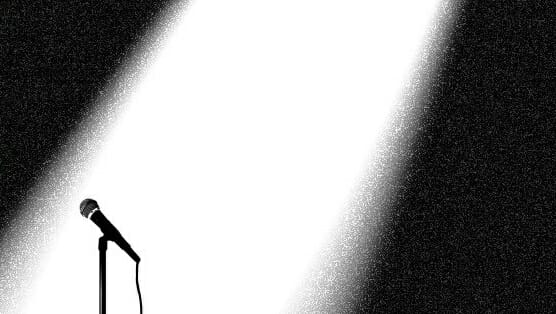10 Movies That Deconstruct Comedy

Humor may be relative, but it’s not accidental. Comedy has to be crafted, and to craft something is to understand its construction. But knowing how comedy works can often ruin the joke, and that may be why so many comedians are miserable and why so many movies about comedy are depressing.
That doesn’t stop people from producing movies that break down comedy, as is evidenced in two new documentaries that explore the makings and makers of humorous entertainment. Misery Loves Comedy features interviews with everyone who is anyone primarily to discuss the titular subject of funny people being unhappy people. Live From New York, which just opened the Tribeca Film Festival, looks at the 40-year success of Saturday Night Live, breaking down everything from the art of impersonation to the significance of political satire.
Neither doc goes deep enough to lose the laughter, likely because keeping things light means keeping the audience happy. But if you’re interested in learning about and analyzing humor more than you’re interested in having a good time, here are 10 more movies, fiction and nonfiction, that deconstruct comedy.
1. The Aristocrats
Deconstruction of comedy doesn’t have to be humorless, of course. This documentary directed by stand-up comedian Paul Provenza is hilarious, no matter your taste or sense of humor, provided that you can appreciate a dirty joke. The movie presents at least 100 acts performing the same filthy bit in their own way, be it mime or prop comedy or self-deprecation or whatever. It’s all just a long reiteration of the saying that it’s not the joke but how it’s told that makes it funny. Well, it’s also not the reiteration but how it’s reiterated that makes this doc so wonderful.
2. Comedian
Fans of Jerry Seinfeld were easily disappointed by this documentary’s serious approach to a year in the life and work of both the famous stand-up and TV star and a lesser-known comedian named Orny Adams, who is just starting out. Because Seinfeld at the time was returning to the stage with all new material, a lot of the film deals with the process of developing jokes and seeing what works and what doesn’t and the attempt to understand why. Presumably this doc has discouraged many prospective comedians who thought it might be a fun and easy job.
3. Punchline
-

-

-

-

-

-

-

-

-

-

-

-

-

-

-

-

-

-

-

-

-

-

-

-

-

-

-

-

-

-

-

-

-

-

-

-

-

-

-

-








































